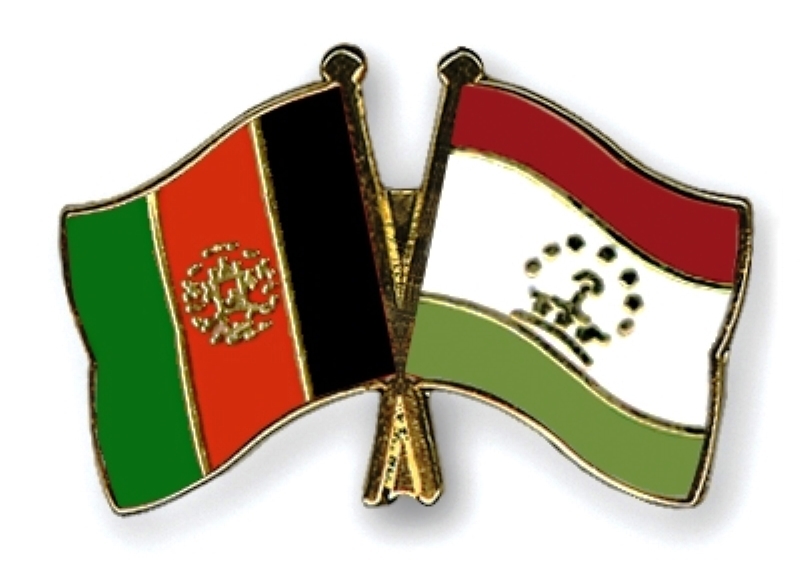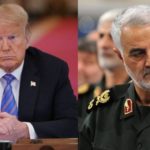During the Taliban’s control over much of Afghanistan in the 1990s, Tajikistan did not recognize their authority, and fully supported the rule of Burhanuddin Rabbani.
After the fall of the Taliban, relations continued to be pursued with goodwill by Tajikistan. Political relations between Afghanistan and Tajikistan have been growing over the past 19 years.
Afghanistan has long been a traditional ally of Tajikistan. As well, the Jamiat-e Islami of Afghanistan and Abdullah Abdullah’s political faction have enjoyed Tajikistan’s support since the beginning of resistance against the Taliban.
Now that Tajikistan has made a significant contribution to regional and international scenes, participating in the Afghan peace process can be seen as another important role for the Central Asia republic.
Increasing Tajikistan’s role in the intra-Afghan peace process could also increase Dushanbe’s position among Afghan Tajiks and also the Afghan government.
Therefore, the continued presence of Persian-speaking and Tajik movements in the future composition of the Final Formula (Partnership Government) in Afghanistan is a very valuable card.
In other words, stabilizing the position of the northerners and the Tajiks in the process of dialogue with the Taliban and any kind of agreement can be considered in favor of Tajikistan.
On the other hand, if the process of talks with the Taliban harms the Tajiks’ position in Afghanistan and the traditional allies of Tajikistan in Afghanistan, Dushanbe will be one of the regional losers.
Security fears and hopes
Most of the 1,344-kilometer border between Tajikistan and Afghanistan runs through a mountainous region. Tajikistan is paying close attention to security on the border.
Afghanistan is the world’s largest producer of narcotics, producing more than 90% of the world’s heroin. Therefore, securing this border is important, as the growing amount of narcotics entering Tajikistan is a significant threat.
From Dushanbe’s point of view, the Taliban’s presence in power in any intra-Afghan peace process could result in the group’s cooperation in controlling the flow of drugs, and ignoring it would increase drug trafficking.
With the expected US withdrawal from Afghanistan, although the Taliban has pledged to prevent the use of Afghan territory to threaten the security of its neighbors, concerns about the group remain.
In recent years, the Taliban have appeared in the northern provinces of Afghanistan (mostly Badakhshan, Takhar, Faryab and Kunduz). Now, Dushanbe fears that any peace deal with the Taliban will lead to the group’s growing influence in key parts of northern Afghanistan.
The Taliban have been trying to establish a base in northern Afghanistan with the help of foreign fighters since 2013. In fact, more than 10,000 foreign nationals appear to be among the Taliban, some of whom are from Tajikistan. The increasing presence of militants in northern Afghanistan has made peace and stability in the country more important for Dushanbe.
Increased activity of the Taliban and terrorist groups such as ISIS in the northern regions bordering Central Asia is also a threat to Tajikistan. Earlier, about 2,000 Tajik nationals in Syria and Iraq joined ISIS.
In 2015, Gol Murad Halimov, a former commander of the Tajik Interior Ministry’s Special Forces, joined ISIS in Syria. Now, Tajikistan is worried that extremists will return to its territory from Afghanistan.
Dushanbe’s fear is that the talks with the Taliban and even the consequences of achieving peace with the group will have negative consequences for Tajikistan.
Tajikistan’s Gorno-Badakhshan Autonomous Region is also bordered by northern Afghanistan, with occasional clashes. If extremist groups from Afghanistan reach Tajikistan’s Badakhshan, they will also pose a major threat to Tajikistan.
Now the threat of cooperation between the Taliban and Tajik fighters and even the illegal Islamic Renaissance Party of Tajikistan is an important issue. If the Taliban shelter foreign fighters and extremist groups despite their promise, it could be dangerous for Dushanbe.
In contrast, if peace with the Taliban puts more pressure on other groups such as ISIS in different parts of Afghanistan, it will also benefit Tajikistan’s national security.
In addition, Tajikistan is a member of the Commonwealth of Independent States (CIS), the Collective Security Treaty Organization (CSTO) and Shanghai Cooperation Organization (SCO). In this situation coordination of national anti-terrorism policies and providing plans to prevent the infiltration of militants from Afghanistan is now important for Dushanbe.
Meanwhile, given the program of intra-Afghan talks and the Taliban’s presence in power and their impact on Tajikistan’s security environment, there is a growing need for military and security interaction between Kabul and Dushanbe.
Also, the increase in intelligence cooperation and the intensification of cooperation in the field of counterterrorism have made Dushanbe more interested in a stronger presence in Afghanistan and being aware of the peace process.
Economic fears and hopes
Trade between Afghanistan and Tajikistan has increased severalfold in the past two decades. In this regard, a memorandum of understanding has been signed between the two countries, which could facilitate the development of cooperation in various fields, from economics and industry to culture.
Also, the Central Asia-South Asia power project (CASA-1000), an electricity-transmission line in the region, the construction of the China-Kyrgyzstan-Tajikistan-Afghanistan-Iran railway, and other ambitious projects will not seem possible without security and stability in Afghanistan.
In sum, from Tajikistan’s point of view, the process of dialogue with the Taliban should, instead of being a major obstacle to expanding economic ties and bilateral cooperation projects, provide a platform for security and achieving peace and expanded economic ties with Afghanistan.
Vision
In recent years, Tajikistan has tried to prove its readiness to help secure Afghanistan and establish peace in the country. For more than a decade, Afghanistan has also been trying to persuade the Taliban to sit at the negotiating table.
Under these circumstances, although the prospect of international peace in Afghanistan is very complex and cannot be achieved in the short term, the reality is that the national interests and security of the Republic of Tajikistan are largely tied to security and stability in Afghanistan.
Therefore, the type of intra-Afghan peace process and the future position of the Taliban in the power and attitude of Taliban leaders toward Tajikistan are among the important fears and hopes in Tajikistan’s foreign policy.













